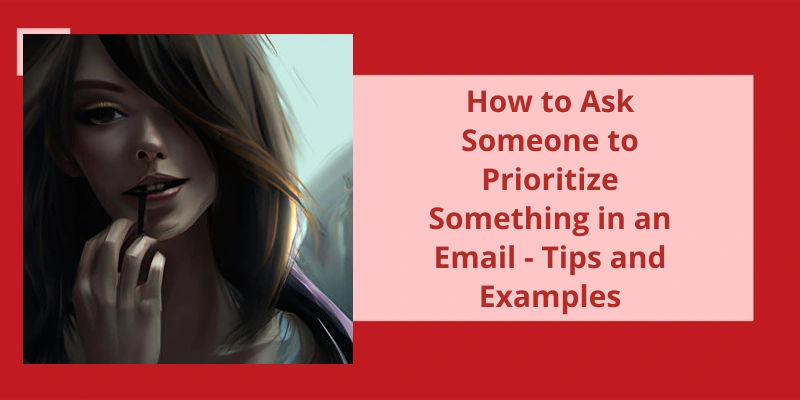Receiving advice from a friend can be incredibly helpful in providing clarity and direction in challenging situations. However, it's important to express gratitude and appreciation for their time and effort in genuinely trying to help you. Finding the right words to say can sometimes be daunting, but a sincere "thank you" can go a long way in showing your friend that their advice has made a positive impact on your life. Whether you plan on taking their advice or not, acknowledging their efforts can help strengthen your friendship and build a deeper level of trust. So next time a friend gives you advice, take a moment to express your gratitude and reflect on how their words of wisdom can potentially benefit you.
Why Does My Friend Give Unsolicited Advice?
However, when advice is given without being sought, it can also cause uncomfortable and awkward situations. Sometimes friends may offer unsolicited advice as a way to feel useful or in control, or because they’ve their own agenda or beliefs that they want to impose on you. This type of advice-giving can be driven by personal insecurity or a need for validation, which can make it feel less genuine and more like a performance.
It’s worth noting that the boundaries around advice-giving can vary between relationships. It’s important to respect these boundaries and communicate with each other openly about what feels helpful and supportive.
If you find that a friend is constantly offering unsolicited advice that feels uncomfortable or unwanted, it’s important to have an honest conversation with them. Be clear about your needs and boundaries, while also acknowledging that you appreciate their care and concern. Try to frame the conversation in a positive light, focusing on how you can communicate more effectively and create a more supportive and empowering relationship.
When it comes to managing unsolicited advice from strangers, it can be more difficult to navigate. In these situations, it’s important to remember that you’ve the right to set your own boundaries and refuse or accept advice as you see fit. Dont feel obligated to engage in conversations that make you uncomfortable, and seek support from friends or professionals as needed.
Ultimately, the decision to offer or accept advice is a personal one that depends on the dynamics of each relationship and the individual needs of the people involved. While well-intentioned advice-giving can be helpful and supportive, it’s important to maintain healthy boundaries and open communication to ensure that the advice is received in a positive and constructive way.
How to Gracefully Decline Unsolicited Advice From Friends and Family
- Thank the person for their input
- Express your appreciation for their concern
- Politely say that you’ve considered their advice but have decided to pursue a different course of action
- Suggest that you’d appreciate their support in your decision
- If the person continues to push their advice, calmly but firmly reiterate that you’ve made your decision
- Redirect the conversation to another topic
What Does It Mean When Someone Asks for Advice?
Asking for advice is often a sign of humility and a recognition of ones own limitations and fallibility. It takes courage to admit that we don’t have all the answers and that we need help. It’s an important part of the human experience to seek guidance from others who’ve more experience or knowledge in a particular area. By asking for advice, we’re acknowledging that we don’t know everything and that there’s always room for improvement and growth.
When someone asks for advice, it’s also an opportunity for you to learn from them. By listening carefully and reflecting on their situation, you may gain new insights and perspectives that you can apply to your own life. It’s a chance to connect with another person on a deeper level, to build trust and understanding, and to form deeper relationships.
However, it’s important to remember that giving advice is a serious responsibility. Your words have the power to shape someones life, so it’s essential to approach the situation with care and empathy. This means taking the time to really listen to the other person, to understand their needs and goals, and to offer advice that’s tailored to their specific situation. It also means being honest about what you don’t know and not making promises you cant keep.
Ultimately, offering advice is about helping someone navigate through a difficult situation or make a decision that will have a positive impact on their life. It’s about being there for them in a supportive and compassionate way, and offering guidance that will empower them to make the best possible choices for themselves. When done with respect and thoughtfulness, giving advice can be a powerful way to build connections and strengthen relationships.
It requires humility, vulnerability, and trust, and it’s an important part of the human experience. When offering advice, it’s essential to approach the situation with thoughtfulness and empathy, and to recognize the responsibility that comes with shaping someones life.
The Differences Between Solicited and Unsolicited Advice, and Their Potential Impact on Relationships
- Sought or solicited advice is advice that’s explicitly requested by the receiver, while unsolicited advice is advice that isn’t requested but offered anyway.
- Solicited advice is generally more welcome and appreciated, while unsolicited advice can often be perceived as intrusive or presumptuous.
- Sought advice can have a positive impact on relationships, as it can demonstrate trust and respect between the parties involved.
- Unsolicited advice, on the other hand, can sometimes strain relationships, as it can create a power dynamic or make the receiver feel judged or criticized.
- It’s important to be mindful of the type of advice being offered and the context in which it’s being given in order to navigate these potential impacts on relationships.
Offering advice can be a meaningful way to support your friends, but it’s crucial to approach every situation with empathy and careful consideration. As you process their concerns, it’s vital to recognize that everyone experiences life differently and their experiences may not be the same as yours. So, how can you provide advice that’s genuinely helpful and respectful? Let’s explore some tips.
What Do You Do When a Friend Asks for Advice?
Start by asking questions to gain a better understanding of their situation and what theyre looking for in terms of advice. It’s important to avoid offering unsolicited advice or assuming you know what’s best for the other person. This can come across as dismissive or presumptuous, potentially harming the relationship.
Once you’ve a better understanding of their situation, consider sharing your own experiences or insights that might help them navigate their issue. It’s important to be honest and genuine, even if your perspective diverges from theirs. Remember, you’re there to support them, not judge or shame them.
Sometimes, it may be appropriate to suggest seeking professional help or advice beyond what you can offer as a friend. If the issue is particularly complex or serious, it’s important to recognize your limitations and encourage them to speak with a trained therapist, counselor, or medical professional who can provide more specialized support.
Throughout the conversation, it’s important to demonstrate empathy and kindness. Let your friend know that you hear and understand their concerns, and that you’re there to support them. Remind them that seeking help or advice is a sign of strength, not weakness, and that you’re proud of them for taking this step.
After the conversation, follow up with your friend to see how theyre doing. Let them know that youre still there for them, and that you’re invested in their well-being. Remember, being a good friend means being an active and compassionate listener, and offering support in meaningful ways. By taking the time to genuinely engage with your friend and their concerns, you can help strengthen your relationship and make a positive impact on their life.
It’s not uncommon to receive unsolicited advice from friends and loved ones, and while their intentions may be good, it can be frustrating or even overwhelming to constantly hear their suggestions. However, setting boundaries and communicating your needs can help make these interactions more manageable.
What Do You Say to a Friend Who Gives Unsolicited Advice?
Another approach could be to gently redirect the conversation by saying something like “I appreciate your concern, but right now I just need a listening ear”. This lets your friend know that you value their support, but you’re capable of making your own decisions. It’s important to establish these boundaries early on to avoid frustration and resentment later on.
It’s also helpful to examine the intentions behind your friends advice. Are they genuinely trying to help you or are they trying to control the situation? If it’s the latter, it may be time to have a bigger conversation about respecting your autonomy and agency. On the other hand, if they genuinely believe they’re helping, it may be helpful to acknowledge their effort and then redirect the conversation back to your own needs.
It’s also important to consider your own role in this situation. Are you asking for advice? Are you consistently seeking guidance from this friend? If so, it may be helpful to communicate your own needs more clearly. Let your friend know when you’re seeking advice and when you just need a sounding board. This can help set expectations and prevent misunderstandings.
Ultimately, communication is key in these situations. It’s important to approach the conversation from a place of empathy and understanding, but also to be clear about your own boundaries and needs. By working together, you and your friend can come to a better understanding of how to support each other in a healthy and respectful way.
When it comes to making decisions, asking for advice from a trusted friend can be a helpful part of the process. However, it’s important to approach the situation with the right mindset and understanding of what true advice seeking entails. Simply asking for someone to provide the answer for us isn’t the best approach. Instead, we should seek guidance from those who’ve an understanding of our unique perspectives and inner workings.
Is It OK to Ask a Friend for Advice?
Instead, it should be viewed as a way of gaining a new perspective on a situation or problem. Friends are often a great source of advice because they know us well and have a vested interest in our well-being. However, it’s important to remember that not all friends are created equal when it comes to dispensing advice. Some may be overly critical, while others might be hesitant to offer an opinion at all.
Asking for advice can also be a way of strengthening a friendship. It shows that you value the other persons opinion and trust their judgment. However, it’s important to make sure that the person youre asking is in the right state of mind to offer advice. If theyre dealing with their own problems or feeling stressed out, they may not be in the best position to provide objective feedback. Be sure to approach the conversation with sensitivity and respect for their feelings.
However, there are also some potential pitfalls to asking for advice from friends. For one thing, they may not always have our best interests at heart. They may be jealous or envious of us, or they may be trying to push their own agenda. It’s important to approach these conversations with a healthy dose of skepticism and not take everything at face value.
However, it’s important to approach these conversations with sensitivity and respect, and to be mindful of the potential pitfalls. Ultimately, the best advice comes from within, and it’s up to us to weigh the opinions of others against our own inner voice. If we can strike a healthy balance between seeking advice and following our own instincts, well be well on our way to making the best possible decisions for ourselves.
Source: Is it okay to consult friends for relationship advice?..
Now that we understand the importance of showing gratitude when receiving advice, let’s delve deeper into how to accept advice in a way that acknowledges the giver’s contribution without compromising your autonomy. There are various approaches and techniques to consider that will help you strike a balance between being open to feedback and owning your decision-making process. Let’s explore some of these strategies.
How Do You Accept Advice?
When someone gives us advice, it can be easy to feel defensive or dismissive, especially if it’s not what we want to hear. However, it’s important to remember that advice is often given with the best intentions, and that the person offering it likely has more experience or knowledge in the area than we do. By accepting advice with an open mind, we can often learn valuable insights and perspectives we may have never considered otherwise.
One way to accept advice is to take a step back and try to see the situation from the givers perspective. Ask yourself why they might be offering this advice, and what their motives might be. Are they genuinely trying to be helpful, or are they trying to push their own agenda? By understanding where the advice is coming from, it can be easier to evaluate it’s usefulness and how it might apply to your situation.
Another important step is to show gratitude for any advice you take. It’s easy to forget to say thank you in the moment, especially if were feeling overwhelmed or uncertain. But taking the time to express appreciation not only acknowledges the persons effort and expertise, but also reinforces positive social interactions and builds stronger relationships.
Of course, not all advice is created equal, and we must also learn to evaluate and filter the guidance we receive. This means being discerning about the source of the advice, as well as seeking out additional perspectives and information to validate or challenge it. It may also mean adjusting or modifying the advice to fit our unique circumstances and needs, rather than blindly following it.
Ultimately, the ability to accept advice with grace and wisdom is a valuable skill that can help us grow and improve in all areas of our lives. It allows us to access the collective wisdom and experience of others, while also staying true to our own instincts and values. By embracing the power of advice, we can move confidently forward on our journey and achieve greater success and fulfillment.
How to Differentiate Between Helpful and Unhelpful Advice
- Trustworthy sources:
- Relevance to your situation or problem:
- Timeliness of the advice:
- Multiple perspectives:
- Consider the motives of the giver:
- Applicability to your values and goals:
- Check for proof and evidence:
- Personal experience and research:
- Open-mindedness and critical thinking:
- Consider the potential risks and consequences:
Conclusion
Remember, being open and receptive to the opinions of those close to you can lead to positive personal growth and development, allowing you to navigate life's challenges with the help of a trusted support system.






